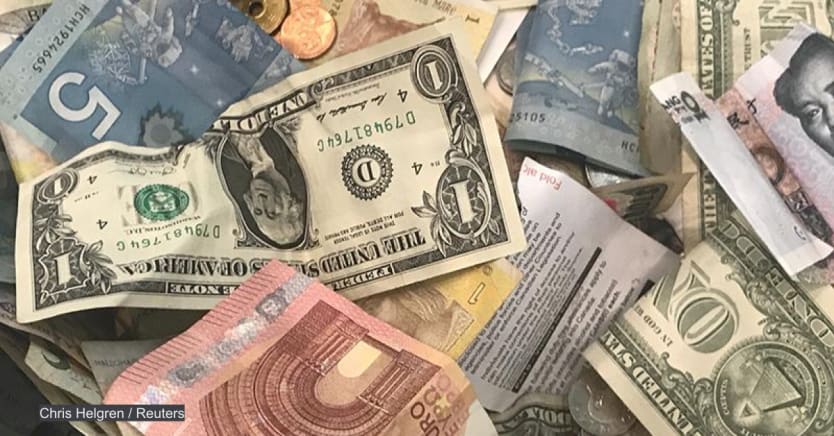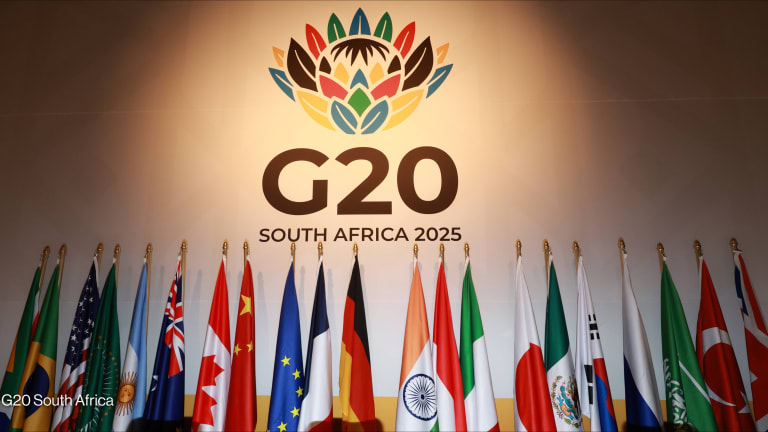
We are at a crucial juncture. Global discussions on how to respond to low- and middle-income countries’ increasing debt burdens could lead us to a prolonged debt crisis in the global south, especially in Africa, or to game-changing debt architecture reform. The question is: What path will high-income countries choose?
Unfortunately, rich countries seem averse to change, unwilling to accept even the possibility of discussing real reforms to debt architecture. They appear to be more worried about retaining power and privileges — in the face of China’s growing relevance — than finding a lasting solution to a debt problem that has plagued many countries in the global south for decades. It is a problem that past and present debt relief programs have failed to resolve.
Before the pandemic, high debt levels in many developing countries undermined governments’ capacity to deliver public services. When COVID-19 created an unprecedented global economic shock, affecting the capacity of developing countries to face their debt service payments, there was no instrument in place to address the need for debt relief.
This is the basis of contentious discussions in the upcoming United Nations Financing for Development Forum, happening in April, and for which governments are currently negotiating an outcome document.
“More than ever before, the world needs a transparent, binding, and multilateral framework for debt crisis resolution, under U.N. auspices that addresses unsustainable and illegitimate debt.”
—Failure to include a call for ambitious action in relation to debt cancellation and debt architecture reform in the outcome document risks condemning millions to poverty, resulting in another lost decade for development. Around 30 million Africans were pushed into extreme poverty in 2020 as a result of the pandemic.
It is estimated that by the end of 2021 another 39 million Africans could fall into extreme poverty. Most of these Africans are women and members of female-headed households.
Furthermore, rich countries’ unwillingness to agree on a waiver to intellectual property rights over the COVID-19 vaccines is a staggering obstacle for LMICs to actually immunize all of their populations. Increasing debt payments only makes this situation worse. The share of government revenues in developing countries used to meet external debt service has increased threefold, from 6.6% to 17.4% between 2011 and 2020.
The G-20 and International Monetary Fund — bodies where countries in the global south have little voice and no real power to influence decisions — have so far agreed on short-term and limited responses, which in the end are no more than false solutions that ensure nothing actually changes.
Almost one year after its announcement, the Debt Service Suspension Initiative has so far delivered only $5.3 billion in debt payments’ temporary suspensions ($5.3 billion of that will have to be repaid after 2022). This is just 1.7% of payments made by LMICs in 2020.
Even if the G-20 extends it until the end of 2021, as is expected to be announced in early April, the initiative will only cover up to 17% of debt payments by developing countries this year. This money will have to be repaid in the following years, while countries deal with the long-lasting scars of the health, social, and economic crisis.
The G-20’s recently approved common framework for debt treatments will also fall short of dealing with debt crises in a timely, orderly, comprehensive, and fair manner.
This new G-20 framework and the DSSI have proven incapable of ensuring private sector participation in debt relief. Not a single private creditor has so far offered debt service suspension nor debt restructuring under the Common Framework to any developing country.
They have excluded multilateral creditors from the effort, are of no use for middle-income countries, and are ignoring financing needs to guarantee human rights, the Sustainable Development Goals, gender equality, or climate resilience. They are also unable to restrain the dysfunctional role of credit rating agencies, which have been deepening debt vulnerabilities of countries in need of debt restructuring.
More than ever before, the world needs a transparent, binding, and multilateral framework for debt crisis resolution, under U.N. auspices that addresses unsustainable and illegitimate debt. It should also provide systematic, timely, and fair restructuring of sovereign debt, including debt cancellation, in a process convening all creditors.
We are dismayed by the international community’s failure to so far demonstrate the ambition, solidarity, and courage that the situation requires.
The high-level event at the U.N. headquarters on debt architecture and liquidity happening on Monday is a now or never moment to advance towards the international financial architecture reform that the world and the planet need in a multilateral and democratic manner. Will the leaders of high-income countries rise to the occasion or desperately cling to their power and privilege?










